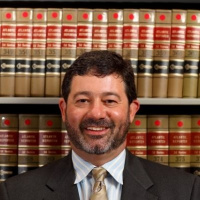Mill Creek Estate Lawyer, Washington
Matthew George Kunz
✓ VERIFIEDAccident & Injury, Personal Injury, Estate, Wills & Probate, Divorce & Family Law
Matthew Kunz is a practicing lawyer in the state of Washington handling personal injury matters.
FREE CONSULTATION
CONTACTJacob H. Menashe
Estate, Estate, Family Law, Guardianships & Conservatorships, Elder Law
Status: In Good Standing
Bridget Bourgette Shaw
Real Estate, Wills & Probate, Estate Planning, Banking & Finance
Status: In Good Standing
FREE CONSULTATION
CONTACTJames A Grutz
Family Law, Wills & Probate, Workers' Compensation, Personal Injury
Status: In Good Standing
Alan Richard Torres
Land Use & Zoning, Estate Planning, Contract, Commercial Bankruptcy
Status: In Good Standing Licensed: 29 Years
James Carl Hanken
Land Use & Zoning, Environmental Law Other, Estate Planning, Business & Trade
Status: In Good Standing Licensed: 59 Years



